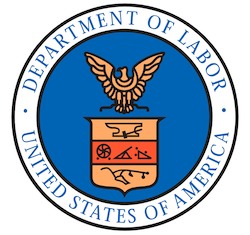- Quick Links

Apply for SBA loans & more
Fill out a single application to access multiple loan programs, bank funding, invoice factoring, and more. We work with lending institutions to tailor the solutions to your cash needs.

File a Mechanics Lien
Don't wait and hope that you'll get paid when this all blows over. Get to the front of the line.

Download the Coronavirus Survival Kit for Contractors & Suppliers
Learn the specific steps that construction businesses can take now to reduce coronavirus' impact on their payments, cash flow, and overall financial health.
Can I do Construction Work in my State - Live Tracker
Find out if you can do construction work in your state during coronavirus and stay at home mandates. Don't risk fines or loss of licenses.
FAQs About Coronavirus & Cash Flow
Answers to commonly asked questions about the coronavirus and its effect on cash flow in construction.

County Office Closures
County recorders' and clerks' offices are closing across the country. View the list of known closures, and learn how to file documents remotely. (Updated daily.)
Ask a Construction Lawyer
Post your coronavirus questions in our Expert Center, where construction lawyers around the country are waiting to help.

Videos & Webinars
Watch videos & webinars about coronavirus in construction, and how contractors & suppliers can prepare.
COVID-19 Information & Support
Contractor resources for health information & financial support from the CDC, SBA, and other organizations.
The construction industry is already seeing huge impacts from the coronavirus pandemic, from delayed material supplies to shuttered projects to legal disputes over non-payment. Before COVID-19, construction businesses had been enjoying one of the longest economic booms in recent memory. Now, a recession may be inevitable – though it’s too early to tell how long an economic downturn will last.
One thing is certain: Cash flow will make or break contractors and suppliers during a downturn. Construction businesses need to get paid for the work they are doing, and build up cash reserves as much as possible to survive the coronavirus and the months ahead. Even in good times, getting paid in construction can be frustrating and difficult. During this period of coronavirus-fueled uncertainty, it’s more important than ever for construction businesses to take every step they can to protect their payment rights.
Contractors and suppliers should take simple, concrete steps now to give themselves the best chance to survive the COVID-19 outbreak.
- Visit the Coronavirus Help Center
- How Contractors Can Survive Coronavirus And Get Paid – Not Burned
- 9 Construction Lawyers Give Scary Advice for Contractors to Survive Coronavirus
Coronavirus Relief: Apply for SBA loans, cash, credit & other resources
As COVID-19 continues to push the US economy towards a recession, construction businesses should be taking every step they can to build up their cash reserves. The Coronavirus Aid Relief & Economic Security (CARES) Act created a number of programs to help, including SBA loans and cash for infrastructure projects. Contractors and suppliers should also be exploring lines of credit, invoice factoring, and other options to improve their cash flow. Apply now for SBA loans and more with a single application.
- June 2020 Update: SBA Relaxes PPP Requirements
- What’s in the $2 Trillion Coronavirus Stimulus Bill For Construction Businesses & Their Workers?
- SBA Paycheck Protection Loans (PPP): How to apply for up to $10 million in forgivable loans
- SBA Economic Injury Disaster Loans provide up to $2m in low-interest loans
- Free Download: Guide to SBA loans, debt relief, tax credits, and other cash options for construction businesses
- Free Download: Calculate your Paycheck Protection Loan amount
Is construction allowed in your state?
As states and cities declare stay-at-home and shelter-in-place orders, many “non-essential” businesses are being forced to close. While the Department of Homeland Security (DHS) has issued guidelines for critical industries during a national emergency, states are generally free to define “essential” as they see fit. In some states, construction is specifically mentioned as an essential business, while others are more vague with their directives.
- Is construction an essential business during coronavirus shutdown?
- Status Tracker: View construction project statuses in every state
Important construction contract clauses during COVID-19
Some cities are already shutting down construction projects in response to coronavirus concerns. For projects already in progress, contractors and suppliers should look at their contract’s delay provisions and force majeure clauses – to determine their next steps. In addition to that, be sure to look out for any “no damages for delay clauses” as well.
- Are Coronavirus Delays Covered Under Your Force Majeure Clause?
- Coronavirus & Construction: 8 Contract Clauses That Could Sink You
- Cessation of Labor can affect your lien deadlines
Prepare for supply chain disruptions
With border shutdowns and restrictions on travel and transport, construction companies need to prepare for some disruptions to supply chains. To anticipate these delays and increased costs, companies need to start planning ahead to identify alternative building material sources, and adjust their project schedules and contracts accordingly.
Coronavirus & business interruption insurance
Construction companies need to begin preparing for the inevitable financial losses associated with loss of income. To protect their company from these coronavirus-related losses, one consideration should be to seek out coverage under a business interruption insurance policy.
Cash flow options
While construction projects are delayed or cancelled, contractors and suppliers still have bills to pay and expenses to meet. They would do well to assess their financial situation and cash flow needs now, and determine what additional infusions they may need to ride out the downturn. Construction businesses that anticipate needing extra cash have a number of viable options, including US Small Business Administration (SBA) Disaster Relief Loans, a line of credit, bank loans, invoice factoring, and more.
- SBA Paycheck Protection Loans For Construction During Coronavirus | Who qualifies & how to apply
- SBA Economic Injury Disaster Relief Loans: A guide for construction
- Guide to SBA Loans & Cash Help For Contractors Getting Crushed By Coronavirus
- Construction Finance Experts Give Emergency Coronavirus Advice
Protect your payment rights
As cash and credit lines dry up, the coronavirus outbreak may make it more difficult for contractors and suppliers to get paid. But in this unprecedented situation, you may not have time to follow the normal mechanics lien process. The most important thing you can do is act now to protect your lien rights.
- During coronavirus, filing a mechanics lien is more important than ever
- Guide to filing a mechanics lien when coronavirus puts your payment at risk
- Construction Project Delay? File a mechanics lien now to get paid
- Preliminary notice could save contractors from coronavirus crisis
- Mechanics Lien: A contractor’s new best friend during COVID-19
Lien rights & field hospital construction
To increase patient capacity, some cities are hiring contractors to build mobile field hospitals. While highly important work, building temporary structures can be a financial risk. Most states don’t give construction companies lien rights for work on these types of projects.
County office closures: How to record mechanics liens & other documents remotely
Every day, more county offices across the US are closing. However, construction businesses still need to record important construction documents to secure their right to payment. Such as notices, mechanics liens, and more. In most cases, contractors and suppliers have options to record a lien or notice remotely.

 Webinar: How contractors can survive coronavirus
Webinar: How contractors can survive coronavirus Webinar: How To Get Paid in Construction During Coronavirus Suspensions and Terminations
Webinar: How To Get Paid in Construction During Coronavirus Suspensions and Terminations Webinar: How to Get Paid on Projects Terminated or Suspended for Convenience during COVID-19
Webinar: How to Get Paid on Projects Terminated or Suspended for Convenience during COVID-19


